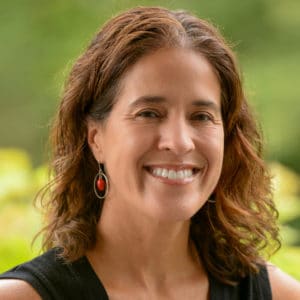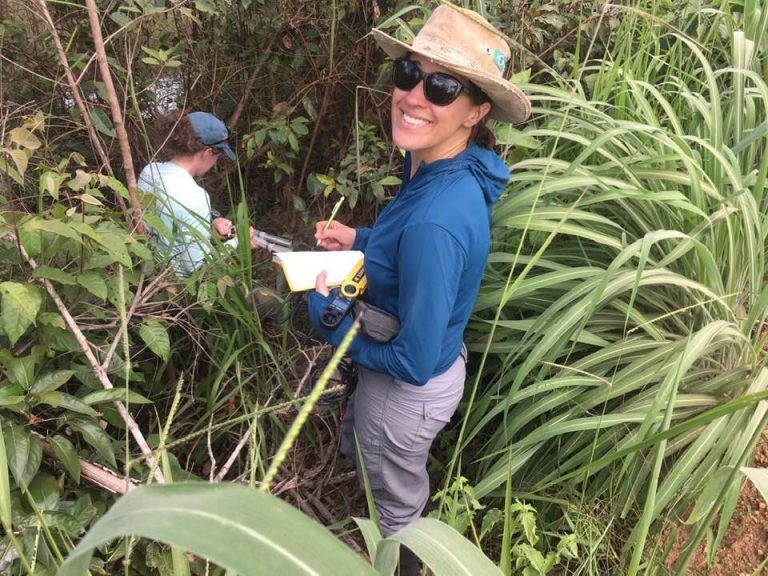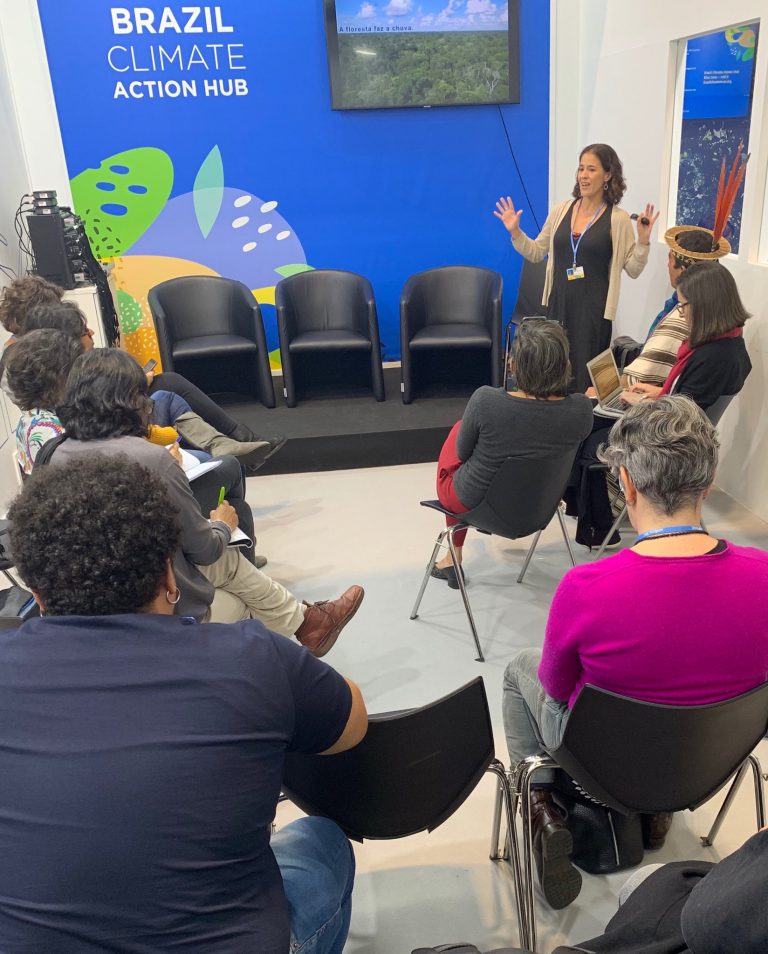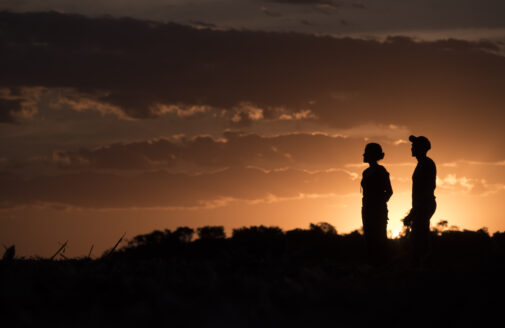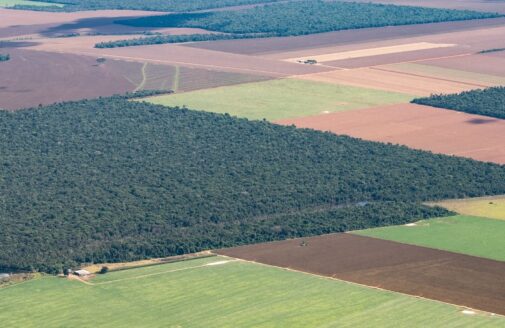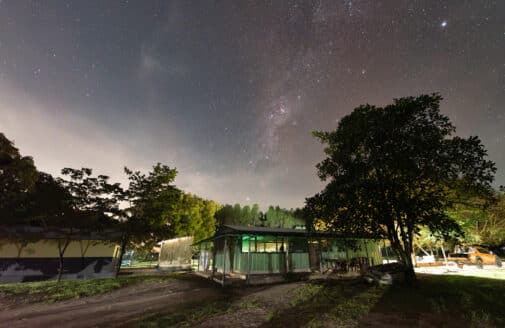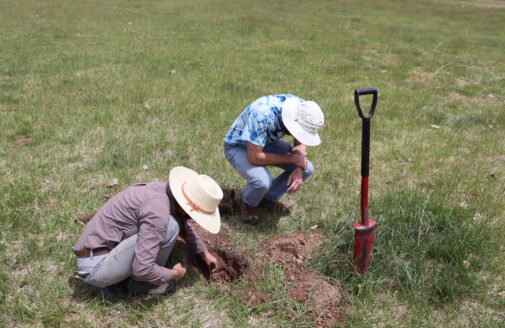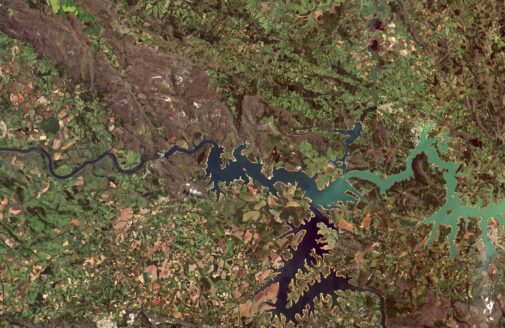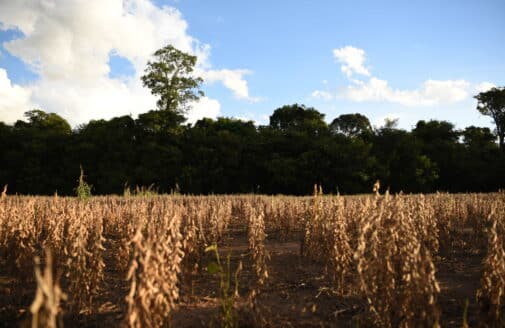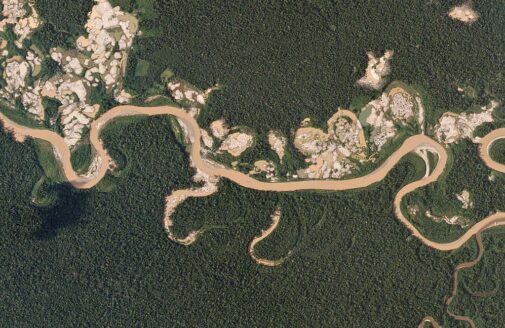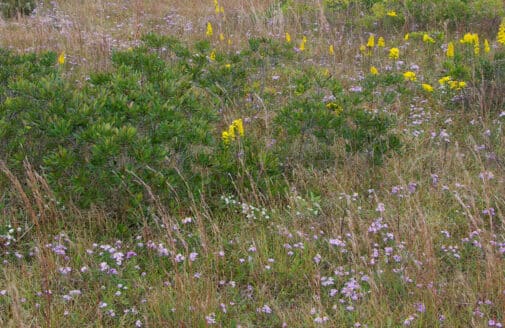I take a unique view of Amazon forests—seeing the forests for the streams. My work explores how land use and climate change are altering the flow of water through tropical landscapes, focusing on hotspots of connection between upland forests and aquatic systems like streams, rivers, and wetlands. I link detailed, on-the-ground ecological understanding with large-scale, remote sensing data and statistical models to inform decisions about land use.
For nearly twenty years, I have worked at the Tanguro Field Station in the southeastern Amazon, collaborating closely with long-term partners at IPAM Amazônia to study the rapid changes in the region and work towards practical solutions.
Recently, I have been leading projects focused on helping Indigenous people and local communities prepare for and adapt to climate risks. Along with other Woodwell Climate researchers and partners, I am developing early warning systems for both fire, which can degrade air quality, and for extreme drought, which can exacerbate fire risk and disrupt river navigation. This work involves translating research into relevant information for Indigenous people and government land managers, and developing decision support tools and training. My research aims to shorten the path between “raw data” (like satellite images, weather data, and deforestation data) and actionable information that is useful to firefighters, forest managers, and disaster response teams.
I am passionate about communicating my science to diverse audiences. I am a coauthor and member of the Science Panel for the Amazon, which aims to integrate state-of-the-art, policy-relevant science with Indigenous and local knowledge about the Amazon to accelerate sustainable and equitable solutions.
I have Brazilian roots and feel strong cultural ties to the places I now study. I have previously conducted research on tropical primates, served as a Program Officer for the Gordon and Betty Moore Foundation’s Andes-Amazon Initiative, and worked in several environmental non-profits, giving me a holistic perspective on my current work.
“My grandparents are from the Amazon and parts of my childhood spent in Brazil sparked a connection to—and curiosity about—this incredible ecosystem. Doing field work is tied up with family visits, old friends, great food, and music I love. The more I learn, the more determined I am to find science-based solutions to the complex challenges facing this region.”




